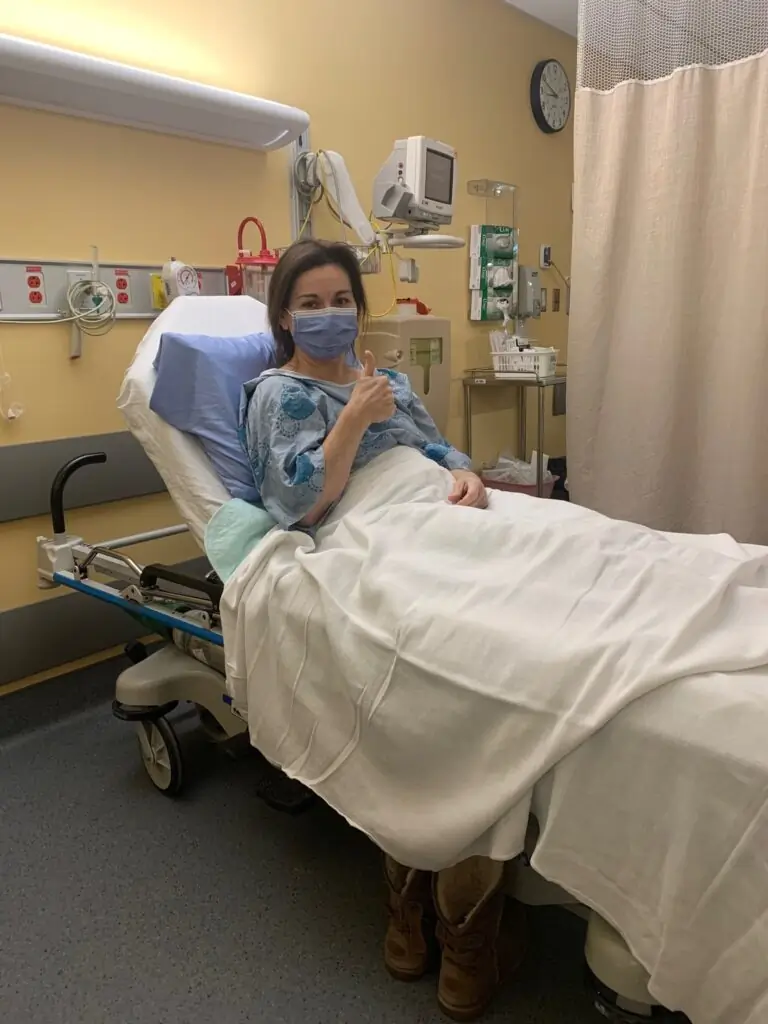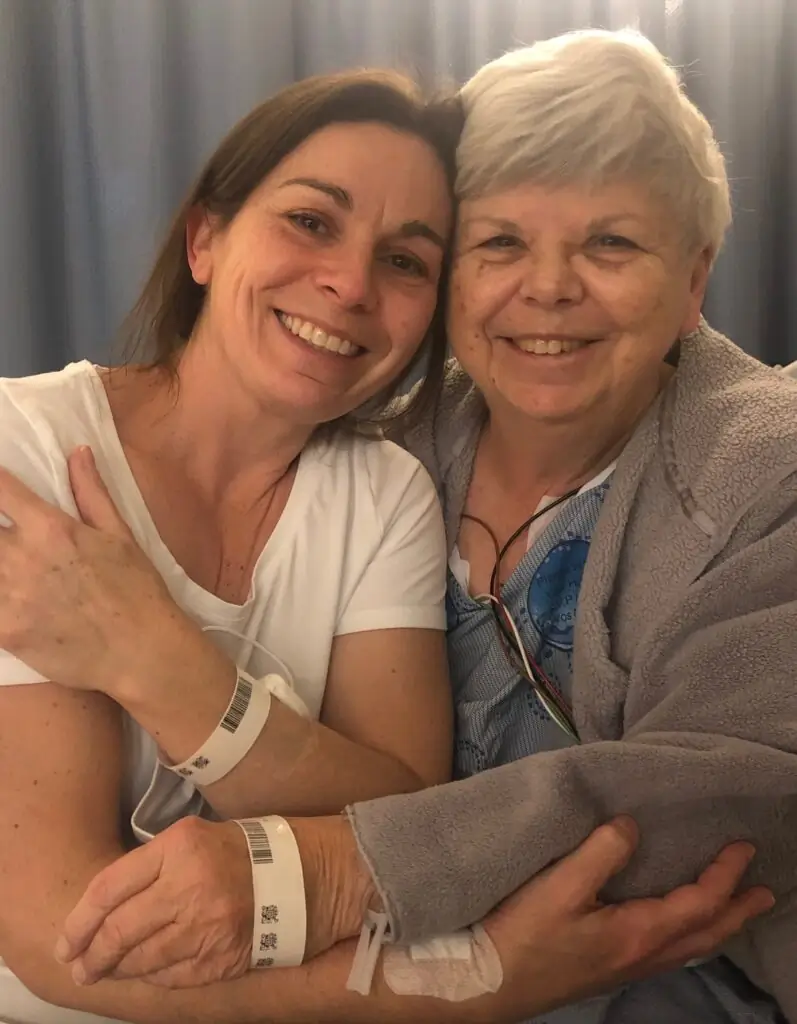
Exercise has always been the one constant in my life. There is nothing quite like the exhilaration I feel when I hit my pace and find my rhythm while running in the sunshine.
For my 50th birthday, my goal was to complete my first Ironman competition. Surprisingly, throughout my 49th year, my physical activity decreased. I went from training six days a week to only two days at best.
I am a busy single mom, an entrepreneur, and business owner of CHEW-THAT, a locally owned and operated pet supply store in the Ottawa area. Pets are my passion, and I was used to “hustling.” However, I felt utterly demoralized.
I struggled to keep up with daily tasks. I thought my tiredness was just mental, but not physical.
I could not finish my triathlon. Discouraged, I thought I was depressed. Then, I stopped training altogether.

A sudden heart attack changed my life
Shortly after, I was walking a client’s dog and completely lost my breath. I felt a sense of dread as my vision narrowed to black. My chest was heavy, and a sharp pain shot up the left side of my neck into my jaw. I was nauseated, clammy, sweaty, and could hardly stand.
I kept thinking, “Did I not drink enough water?” My daughter’s face went pale when she saw me come into the shop. She urgently told me to wait before I took off again to make my next delivery, as she frantically looked up all of my symptoms online. Honestly, she ended up saving my life.
I told myself: “I’m fine … I’m healthy and fit; nothing is wrong with me.” After resisting, I went to the hospital anyway and was sent to a cardiologist at once.
I failed a stress test and had another emergency test. My angioplasty was performed at the Heart Institute, and they found a heart murmur.
Today I live with angina and manage my symptoms through lifestyle changes and medication.
Running too much is bad for heart health
I remember a moment in the operating room that really hit home. I was speaking with my surgeon about competing again. He paused, looked around the room, and said, “Not one of us here would run more than 10 kilometres regularly because it would overstress our hearts.”
It was a “light bulb” moment for me, one that blew my mind because I always thought that more exercise was better and that I needed to do more.
Emotionally, I still have not completely adjusted to the fact that my life has changed. Being an elite athlete was a huge part of my identity. I sometimes still feel panic because I cannot exercise in the same way that I could before.
The good news is that I can still run safely as a cardiac patient, but I need to do things differently.

Genetics impacted my heart health
My body was screaming at me to get help, but I wasn’t listening. The cardiologist also told me that my genetics contributed to my heart disease. I was unaware of my history.
It turns out my mother was admitted to the Heart Institute on the very same day for an emergency procedure! We are both doing well but heart disease almost took us away from each other.
My younger friends have told me, “I hope I get to look and be like you when I am 50.” Even healthy and fit women need to understand the symptoms of heart disease. We all need more support and to pay attention to our health and not always “muscle through.”
Signs of heart disease in women
Women’s heart disease has been under-diagnosed, under-treated, and under-researched. We often experience symptoms of heart disease differently.
For instance, the signs of a heart attack in women vary greatly and can include symptoms like I experienced: chest pain, jaw, neck, or arm pain, excessive sweating, shortness of breath, feeling nauseous, or being unusually tired.
Are women at higher risk of heart disease?
Pregnant women with preeclampsia — persistent high blood pressure — have a four-times increased risk of heart attack. After menopause, women are more at-risk for coronary heart disease and other conditions. We need more education and conversation to spread the word and increase our survival.
Today, I am grateful to be alive. I am excited to participate in February is Heart Month and to support excellence in cardiac care and the Heart Institute in my community.
Today and all this month, your gift in support of women’s heart health awareness, advocacy, and research will be matched by our sponsors!
It is my way of giving back to the doctors, nurses, and healthcare staff who continue to take good care of me. That is also why it is so important to me to share my story with you.







